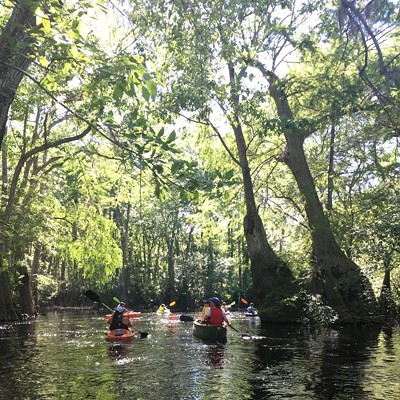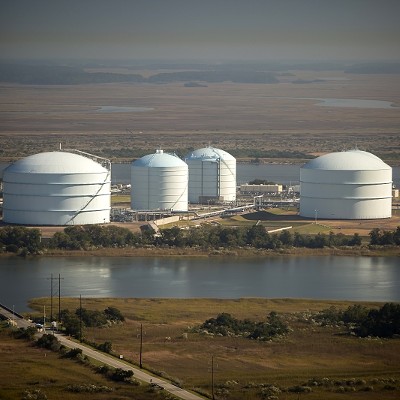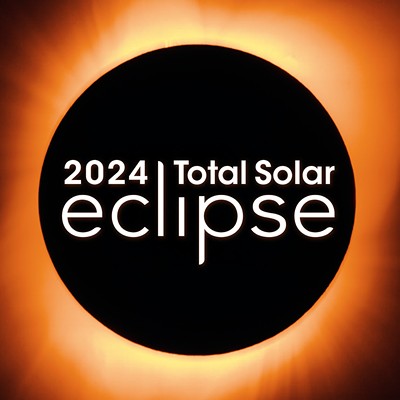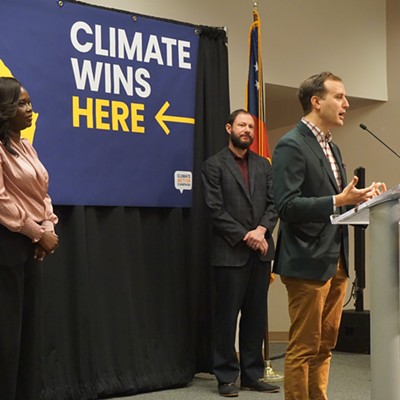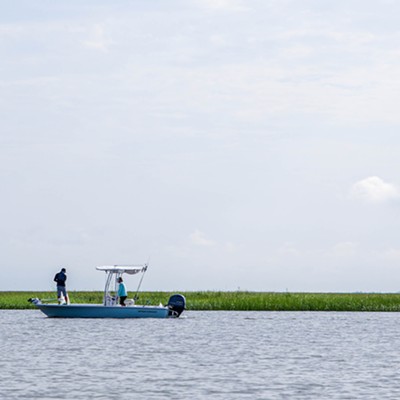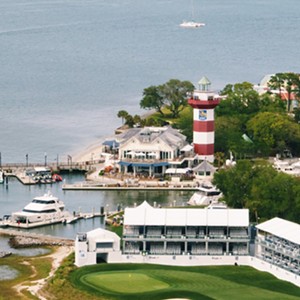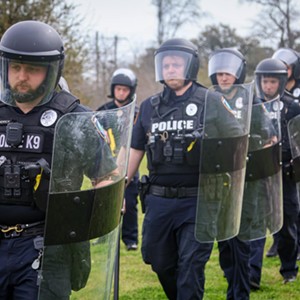I KNEW that oil and gas companies enjoy generous tax breaks that subsidize healthy profits. But what I didn’t know until I started looking into Kinder Morgan’s expansion of Elba Island—awaiting federal approval to turn the dormant import terminal into a liquefied natural gas (LNG) export facility—is that the federal agency created to regulate natural gas projects is basically a henchman for industry.
Because of the fracking boom, the Federal Energy Regulatory Commission (FERC) is busy rubber-stamping applications to build gas liquefaction plants to export LNG. Savannah’s Elba is next in line to get the green light. If it does, Kinder Morgan will move with barracuda speed to transform Elba into a moneymaking machine, piping gas in, liquefying it, and sending it out into the global market.
The problem isn’t that the industry is cashing in on domestically produced energy or even that exporting it will raise natural gas prices here in the U.S.
Although galling, the problem isn’t that FERC is ignoring direct impacts to Savannah, including huge increases in traffic, pollution, and greenhouse gases.
The primary problem is that the system is rigged.
While federal regulation mandates FERC to prepare an Environmental Impact Statement (EIS) for siting, construction and operation of new LNG facilities—and the Elba plant will be a spanking-new facility—the gas industry doesn’t want to wait the typical two years for the analysis. FERC is obliging with a less stringent environmental review.
In an industry that embraces spending money to make money, Kinder Morgan spends millions in lobbying and campaign donations every year and has bought up a good portion of political influence.
Consider the comments filed in the Elba docket by Georgia’s U.S. Senators Isakson and Perdue and Congressman Carter urging FERC to hurry up and issue the Environmental Assessment (EA), which is not just a watered down version of an EIS, but a regurgitated version of the application.
This scenario of federal agencies, politicians and industry colluding is exactly what a 2014 Princeton Study uncovered.
“The central point that emerges from our research is that economic elites and organized groups representing business interests have substantial independent impacts on U.S. government policy,” the professors write.
The EA for the Elba LNG export facility, which was written by FERC staff, was released February 5 with the recommendation that the commission approve the permit for Kinder Morgan to construct a $2 billion liquefaction plant.
Despite the EA’s finding that the project “would not constitute a major federal action significantly affecting the quality of the human environment,” it lists 90 mitigation measures that belie that finding.
Although the U.S. Council on Environmental Quality says that agencies should not rely on mitigation measures to avoid an EIS, the trend is for expeditious LNG permitting. There is even a bill in the senate—the Energy Policy Modernization Act—that among other provisions favoring fossil fuel industry would expedite the permitting process for LNG export facilities.
Far from the Washington power and money grab, here in Savannah where 1.6 billion gallons of natural gas would be liquefied and exported every year, the impacts have the potential to be significant, with or without mitigations.
If approved, the busiest port on the East Coast will share its navigational channel with LNG carriers holding more than 70 million gallons of fuel. Just a 3-million-gallon spill could travel more than three miles as a vapor cloud, and in populated areas, it would likely encounter an ignition source.
The flammable refrigerants that would be trucked in and stored on the island compound the hazard. Communities close to LNG facilities and scientists who study LNG have been urging FERC to reform its siting and safety policies for years.
Then there is Kinder Morgan’s lack of transparency. In its Elba application, there are discrepancies over water usage needs. Kinder Morgan reports there would be a “marginal increase in groundwater extraction rates,” which FERC repeats verbatim.
However, just as LNG export facilities are inherently riskier than import terminals, they also consume much more water.
The GA EPD requires permits for water withdrawals above 100,000 gallons per day. In 2013, as Kinder Morgan was preparing its Elba Liquefaction application, the agency prohibited new groundwater withdrawal permits in order to slow saltwater intrusion. Kinder Morgan claims their water needs won’t exceed the 100,000-gallon threshold. This doesn’t add up.
Let’s compare Elba with Cheniere’s larger facility in Corpus Christi, which reports the 2.14 Bcfd facility will require 3.782 million gallons per day. Scaling that down to the export capacity of Elba (.35 Bcfd) equals 618,600 gallons per day.
If FERC approves the project, not only will Kinder Morgan be the only LNG export facility that doesn’t either pay for water or have a withdrawal permit, it will be the only one that self-polices its water usage. According to Bill Frechette, who oversees groundwater permits in the GA EPD, the state requires industries to self-determine whether a permit is required.
“It’s based on good character kind of stuff,” he said. Kind of scary when you consider who we’re talking about.
I plan to submit comments to FERC and request an EIS. We have until March 7. For more information go to saffe.space.

